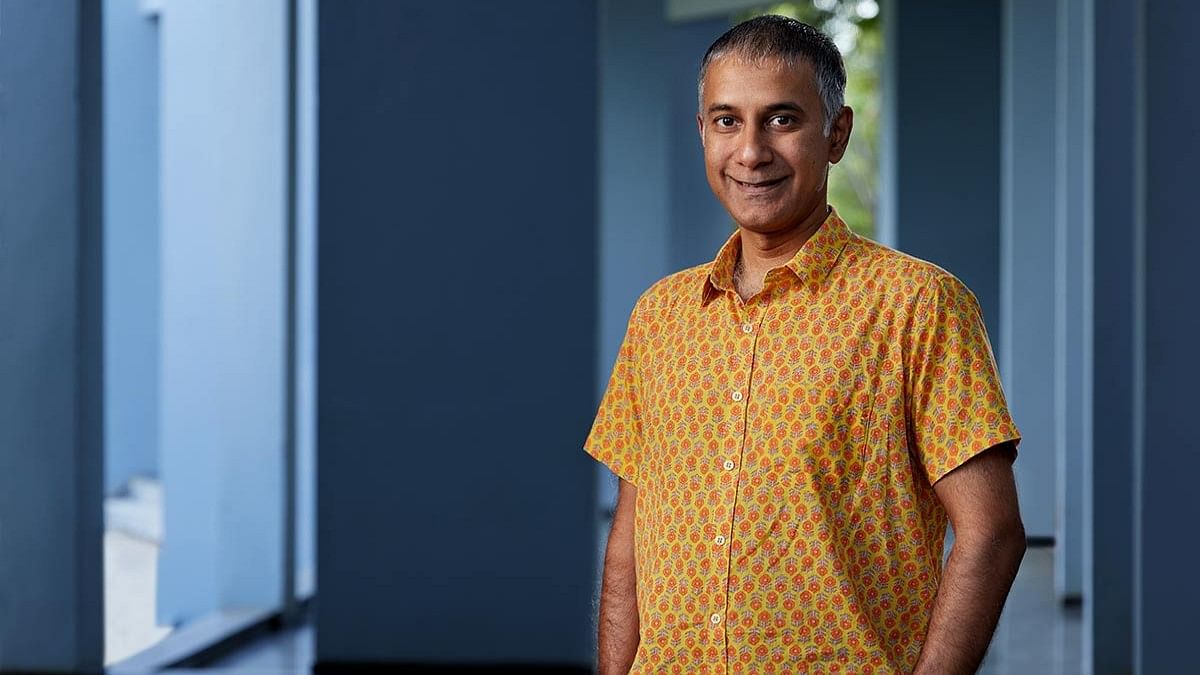Bengaluru: The Infosys Prize 2023 in Physical Sciences has been awarded to Dr Mukund Thattai of the National Centre for Biological Sciences (NCBS) of the Tata Institute of Fundamental Research, Bengaluru, for his work into understanding the emergence of complex cells.
According to the press statement, Professor Thattai has “studied a problem lying at the crossroads of cell biology and evolution using powerful tools from physics and computer science”.
His contributions include his work on the emergence of eukaryotes from prokaryotic ancestors, the origin of hallmark eukaryotic traits such as mitochondria and the vesicle trafficking system, and the evolution and function of the Golgi apparatus, it adds.
The Infosys Science Foundation (ISF) felicitated the winners Saturday at a ceremony in Bengaluru. The names of the winners were announced in November.
ThePrint spoke with Dr Thattai on the significance of his work and its applications.
Q: What part of your work won the Infosys Prize and what is its significance?
A: I try to understand how complex cells emerged, in the field that is now called evolutionary cell biology. One approach we take is to reconstruct the history of cells by looking at genomes. There are a lot of genomes of eukaryotes, so you can use statistical methods to push back in time to try and reconstruct what kinds of molecules these cells encoded, what kinds of proteins in the genomes.
But that’s just half the story right? Knowing the protein sequence doesn’t tell you how the cell actually functions. So we use models and approaches from physics and computer science to make dynamical models of cells. And we sort of feed in what we think the molecular repertoire was. As an output of that, we get the physical configuration of the cell.
The specific aspect I’m interested in is called the membrane traffic system. Just like there are vehicles moving around between warehouses in a city, there are little bodies called vesicles that are moving around actively between eukaryotic cell warehouses, called organelles. Vesicles pick up cargo from one organelle and deposit it into another.
The fundamental molecular interactions and processes are scaled up to become networks, and physics plays a major role when it comes to movements of these components of the cell. At this scale, we know the dynamics are not fully controllable and there is a lot of noise. But despite that the cell is amazingly reliable.
Q: How will your work be applied in the near future?
A: The work first of all tries to answer the fundamental question of who we are and where we come from, at a unicellular level. At a higher level, there are several applications of studying membrane traffic systems.
For example, viruses hijack this system to replicate. And then there is the amount of data that is coming in, and this biological data cannot be thought of without thinking about evolution. More people who start to use evolution as a framework in their work can extract meaning from this data and that will be the longer term application of our findings, where evolution is centered in products.
Q: What is your background and the context for your work?
A: I am trained as a physicist but I have been working at the National Centre for Biological Sciences, which is quite representative of the fact that biology today is very much an interdisciplinary effort — starting with sophisticated experimental methods all the way to the kinds of new data analysis needed for complex biological experiments.
When we look at the origin of cells, there are a few big leaps that happened. First, the very origin of life is pre-cellular. They were just molecules that may have undergone something like Darwinian evolution, but evolution really kicks in when you get cells which are able to store their own genetic material and therefore, in some sense, keep their own innovations to themselves compete. Those cells are prokaryotic, what we call today bacteria and archaea.
Another big leap is in cellular complexity that happened around 1.5 billion years ago, where a new type of cell called eukaryote emerges. This is what I study, how cells transitioned from small, architecturally simple prokaryotic cells to larger, architecturally complex eukaryotic cells.
Q: What is the role of science and science communication in society?
A: I think we’re in a sort of paradoxical time where science and the products of science are more powerful than ever, and yet, people’s general skepticism of science is increasing. And there are reasons for this right? In the sense that no science actually goes out and touches people. And people have to make decisions every day based on scientific facts. So it’s fair enough that lay people should ask what is the basis for the claims that scientists are making.
If we don’t fill that gap and explain what the basis is for the claims we’re making, I think we leave open space for misrepresentations of science. And this can have obvious long-term negative consequences for society. So I think it’s not only fun to talk to people and get excited to explain your work, but also just to explain the times is, in fact, based on uncertainty. It’s absolutely core to science.
We can never have a full working knowledge of any complex system, and yet it’s the best we have. And so how to balance these two things and make informed decisions is something that people should engage in and I think scientists have some role in that discussion.
(Edited by Gitanjali Das)
Also Read: Science community slams NCERT’s move to delete Darwin’s theory of evolution from books: ‘Travesty of education’

